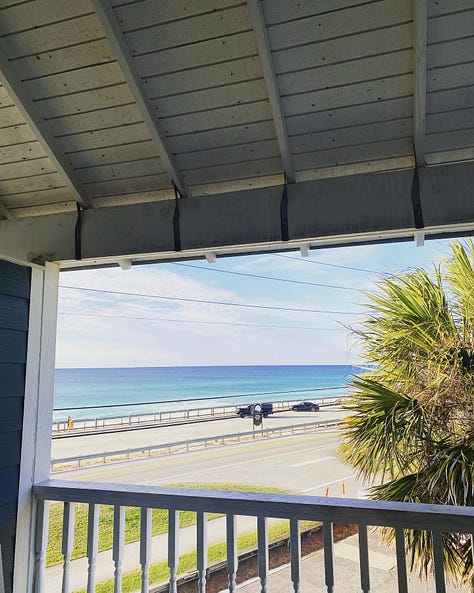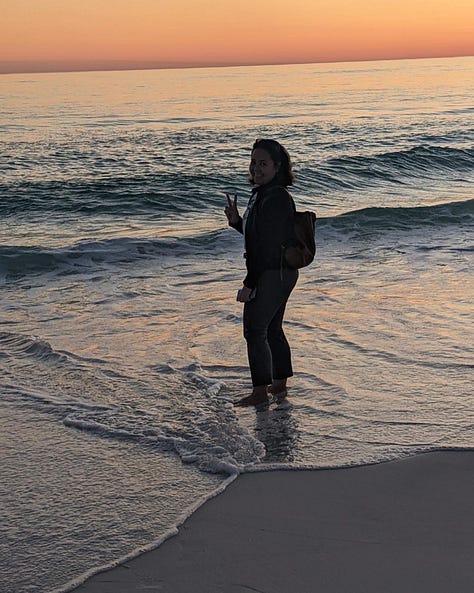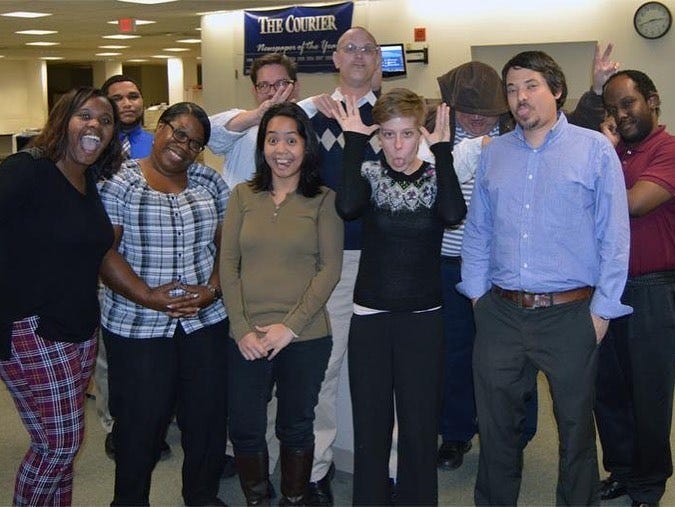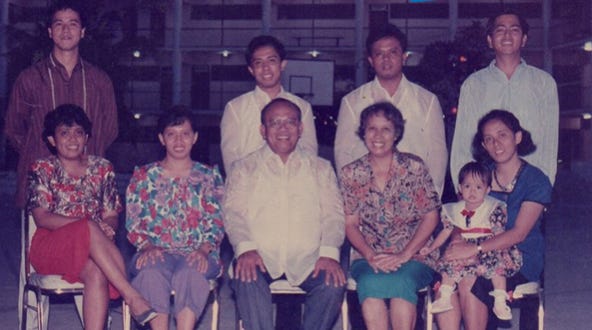A bit about why I launched this thing ✈️
Where did this all come from anyway??
“I’d rather have a challenging and interesting life.” – New York musician and artist Eliza Waldman (aka @elizaandtheorganix on IG)



Last December, as I was sitting on the balcony of a beachfront apartment overlooking Florida’s Emerald Coast, I was struck by the way time moved and how it is, in actuality, a flat circle.
My girlfriend Eliza and I had planned a spur-of-the-moment trip to come down to Florida and get away from the cold North – she from New York, me from Ohio. We were trying to get away from the objectively hard year 2022 had been for both of us (“20-twenty-boo!”).
I’ve admired Eliza ever since we met as precocious college students studying abroad more than a decade ago.
These days, she’s a career musician and a teacher, a badass star of the New York City music scene, and an enlivened Scorpio through and through. She didn’t grow up rich, but she was always determined to be a musician, and damn it if anyone was going to get in her way. She’s been following her dream ever since.
Eliza was also the one who taught me – almost a decade ago after I had gotten fired from Corporate America – the beauty of the maxim above.
Back then, I was living in New York City, miserable and dried up, when a once-in-a-lifetime opportunity to move down to the bayous of South Louisiana and become a crime reporter came along. I was lucky to get this gig, but deathly afraid of making the leap. I didn’t know how to drive; I hadn’t written in ages; and I’d never lived anywhere in America aside from the East Coast.
I jumped in anyway.


Ever since that fateful conversation with Eliza, my life has definitely taken some challenging and interesting turns. I moved down to bayou country and reported on the local criminal justice system during the first wave of the Black Lives Matter movement. (And then, after leaving the paper, I learned a lot of valuable lessons on how not to report on crime by criminalizing Black people and thoughtlessly soaking up cop propaganda. Or is it “copraganda”?)
Eventually, I ended up working for a human rights law firm in Alabama that focused on mass incarceration, where I helped their executive director shape the national conversation around racial justice through media and cultural education. After getting burned out from the nonprofit world, I took a much-needed break with family out in Colorado, finding a great gig with a local business media start-up that allowed me to get back on my feet and find my groove back.
I slowly crept back into journalism – this time with a decidedly more political bent – and was fortunate to have my stories published in outlets like The Guardian, Rappler, and Capital and Main. These days, I live in Ohio, where I’m leading communications for a Midwest organizing powerhouse.
As cliche as it sounds, the past decade has been a long and winding road. This journey has taken me from the Northeast all the way down to the Deep South, followed by a brief stint out West and then finally moving to the Midwest where I currently live.
It’s been a road punctuated by joy, varying degrees of success, and sobering life experiences – including crushing heartbreak and an overwhelming dark night of the soul that for two years threatened to engulf everything I had worked so hard for.
Throughout these seemingly disparate experiences, one thing has remained constant.
My love of stories. And the regular people – the everyday heroes – who have always featured in them.
Back in the 1980s, my enterprising grandparents in the Philippines started a business in the province of Bohol that aimed to uplift rural, low-income Pinoys from the barrios by providing them with a quality, affordable college education.

Through sheer willpower and good business sense, my grandparents turned what started out as a small, two-room schoolhouse in Bohol into a thriving system of six vocational colleges spread out across three Filipino provinces. The result is the BIT International College System.
Many of BIT’s former students are now living and working across the globe as part of the 2+ million Overseas Filipino Worker population. They make up the millions of nurses, caregivers, teachers, seafarers, builders, and service workers who power the global economy — and whose stories have yet to be told.
This is why I launched PUNTO.
Growing up in the Philippines, the U.S., and the U.K., I know what it’s like to have to adapt and conform so you can be taken seriously by the same people who question your existence, based on the color of your skin and the way you speak English.
I know what it’s like to have to overcome huge social, cultural, and psychological barriers in an alien country, where the odds are interminably stacked against you as a brown-skinned immigrant and foreigner.
My circumstances may be different from that of my kababayan, but the life of a diasporic Pinoy is a lonely and familiar one.
Much has been said about the Filipino identity (or our lack thereof, according to certain ignorant Western sources). PUNTO will disrupt and expand this conversation so it includes the multiplicity of all our voices from the diaspora – the activists, the OFWs, the entrepreneurs, the politicos, the artists, the lawyers – and shows how each and every single one of us is co-creating what it means to be Filipino today.
The Filipino experience is a glittering, complicated, and deeply-layered mosaic that includes all of us.
Thanks for reading.
#Abangan (Coming Soon!):
Writing “ugly drafts”: How a Filipina-American civil rights lawyer learned to stop worrying and love her creative self




"Multiplicity" is interestingly as important a descriptor of the Filipino and/or the Filipino experience as anything. I've often been asked to describe this group and it feels an impossible task. Even looking at the experiences within my own family, I see where we are and how we view our heritage and history distinctly, despite our fairly similar starting points.